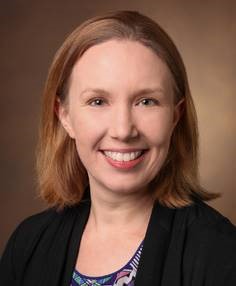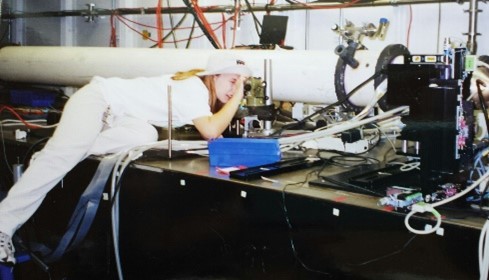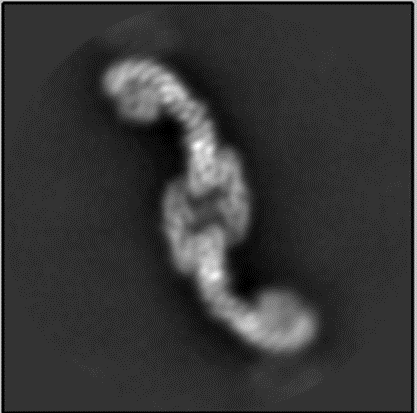
“A confusing experimental result almost always means you’ve stumbled upon something interesting and maybe even exciting. I think that’s what makes science fun,” says Lauren Parker Jackson, Ph.D., an assistant professor of biological sciences at Vanderbilt University, Nashville, Tennessee. Check out the highlights of our interview with Dr. Jackson to learn how she became a biologist and what she studies in her lab.
Q: What sparked your interest in science?
A: I credit my high school chemistry, physics, and biology teachers with getting me interested in science. They were quirky, they were talented, they were energetic, and they weren’t afraid to push us. As a teenager, I did a lot of science fairs and quiz bowls, where two teams compete to answer academic questions. As a high school junior, I took part in the Governor’s School for the Sciences and Engineering, where I spent a month at the University of Tennessee, Knoxville, studying chemistry in a lab. That exposed me to research for the first time.
Q: What was your path to a research career?
A: I started at Vanderbilt as an undergrad in chemistry. In my first year, I went to my professors and asked, “Are there research opportunities?” A lot of professors said, “No, not for freshmen,” but one, Dr. Gerald Stubbs, said yes. I joined his lab the summer after my first year at Vanderbilt, and I never left. I originally thought I was going to attend medical school, but doing research in his lab changed my trajectory.

I went on to earn my Ph.D. in England at the Medical Research Council Laboratory of Molecular Biology and Trinity College, which are both part of the University of Cambridge. After my Ph.D., I went into management consulting for a couple of years in London, but unfortunately, that was 2008—during the financial crash. It was a very weird time to be in consulting, and I didn’t like it at all. I ended up going back to do postdoc studies for four and a half years at the Cambridge Institute for Medical Research. Then I returned to Vanderbilt as faculty in 2014.
Q: What’s the focus of your lab?

A: I often describe what we do in my lab as studying the FedEx system inside our cells. Our bodies need to transport a lot of important molecules such as proteins and lipids to function correctly. We have to make sure these molecules get to the right place at the right time in a pretty crowded environment. Almost everything in our bodies depends on this in some way: neurotransmission, nutrient uptake, signaling, metabolism. Our research tries to understand how cells build little transport structures called vesicles or tubules that move molecules where they need to go.
Our goal is to visualize what these transport structures look like so we can understand how the molecules interact with each other and how cells build the structures. A lot of the proteins we study are linked to either genetic disorders or neurodegenerative diseases such as Alzheimer’s and Parkinson’s, so there are important human health implications in addition to understanding the basic biology.
Q: What challenges have you faced in your career, and how have you addressed them?
A: Transitions are a big challenge we all face in our careers. When I transitioned from undergraduate to graduate education, the idea that sometimes experiments fail—even that projects stall and maybe we don’t succeed on our timelines—was really hard for me. Having to admit that I wanted to go back to academic science and recognizing that consulting was a detour in my career path was another transition. Reaching out to other people at those points helped me stay on the path. I think it’s super important to maintain connections with your family, friends, mentors, and peers because it’s very easy to become isolated.
Q: What goals are you focusing on?
A: Especially over the last 18 months, I’ve thought a lot about the importance of serving as a mentor and an advocate for younger scientists from different backgrounds. I didn’t know a single scientist or academic when I was growing up. I was the first in my family to pursue this path, and it was really confusing a lot of times. As an undergrad, I don’t think I had a single female science professor. But I had so many male science professors who were willing to serve as mentors and who understood the importance of broadening the type of people who become scientists. Within my classical studies minor, I also had very strong female mentors, and they encouraged me to consider academia.
Now I feel strongly that it’s important to be a mentor not only to trainees but also to your peers along the tenure track. Of course it’s vital for young faculty to build relationships and get advice from senior mentors. But some of the best and most timely advice comes from colleagues just a few years ahead of you or at the same career point. Advice from peers is vital during the transition from postdoc to faculty, and peer mentoring is really important as questions arise about effective mentoring, time management, and teaching/service load.
Q: What advice do you have for students interested in pursuing a career in science?
A: I always tell undergraduates, “If you want to be the smartest person in the room, you have to read frequently and deeply.” This applies whether it’s a textbook in the early days or the scientific literature later on. It’s not enough to skim an abstract, read Twitter or Instagram, or watch lots of 5-minute talks. Sometimes students think there’s secret advice to being successful, but it takes time to master techniques, to read, to think about and interpret data. Every single stage in a project takes time, especially in those early years, and we just have to recognize that we need to spend time on our work. That doesn’t mean that work should be all-consuming, but it’s not casual, either.
Dr. Jackson’s research is supported by an NIGMS Maximizing Investigators’ Research Award, R35GM119525.

